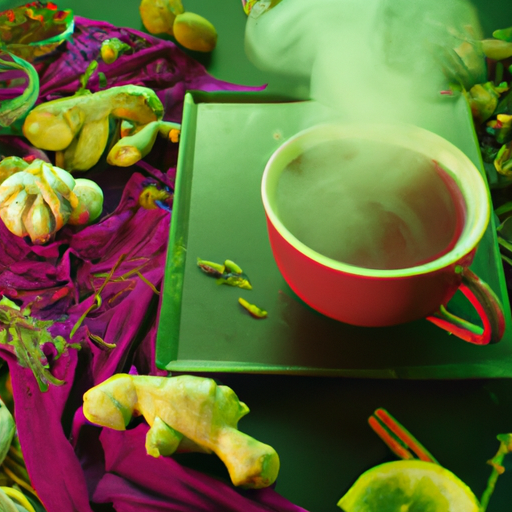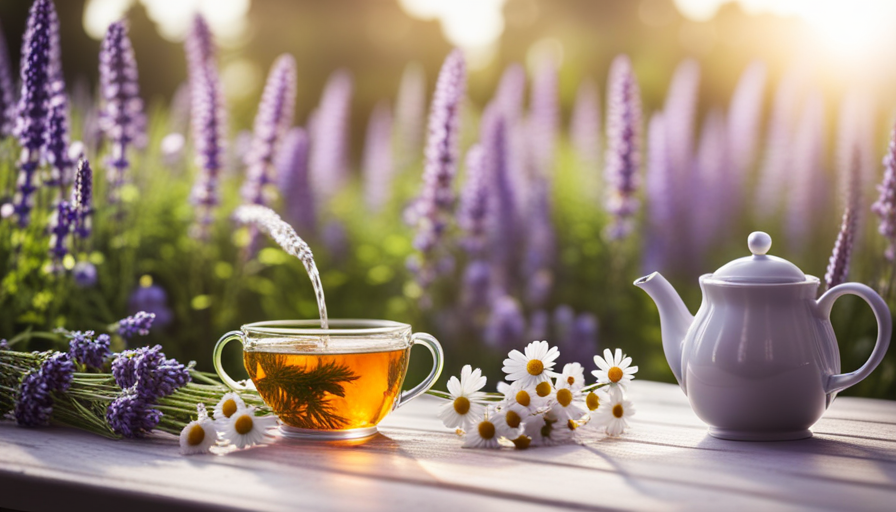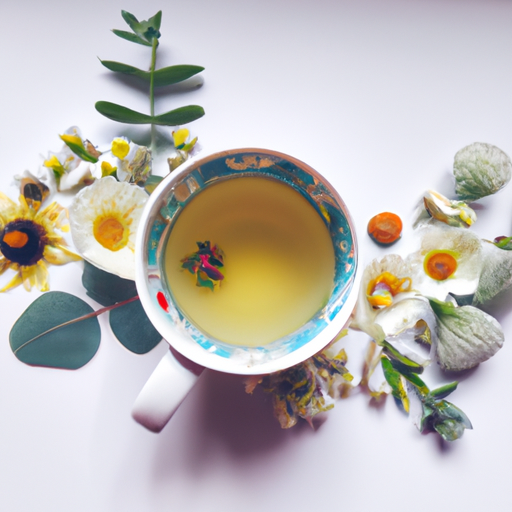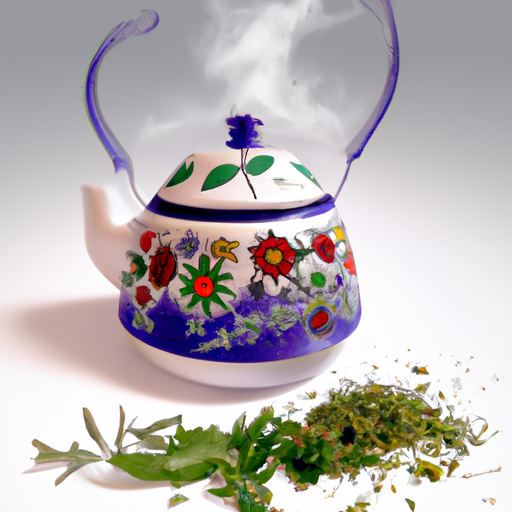Have you ever brewed a fragrant cup of herbal tea, only to find yourself unable to finish it all in one sitting? As the steam rises and the flavors infuse, there’s nothing quite like indulging in a warm, soothing sip. But what happens when life gets in the way and you can’t drink it all at once? How long can you keep that brewed herbal tea before it goes bad?
Like a delicate dance between nature and time, the shelf life of brewed herbal tea is a topic worth exploring. In this article, I will unveil the secrets behind the freshness of brewed tea and the factors that affect its longevity.
From proper storage techniques to identifying signs of spoilage, I will guide you through the journey of preserving that perfect cup of tea. Whether you’re a tea enthusiast or someone who simply enjoys a casual cup, join me as we uncover the art of extending the freshness of brewed herbal tea.
Key Takeaways
- The shelf life of brewed herbal tea can be extended by proper storage techniques and identifying signs of spoilage.
- Different types of herbal tea require different brewing techniques for optimal flavor and offer unique health benefits.
- Storing brewed herbal tea in the refrigerator and using airtight containers can help preserve freshness and taste.
- Leftover brewed tea can be repurposed in recipes and beauty treatments to maximize flavor and reduce waste.
Understanding the Shelf Life of Brewed Herbal Tea
Did you know how long you can actually keep brewed herbal tea before it goes bad? Well, the shelf life of brewed herbal tea depends on several factors affecting taste and freshness.
First, let’s talk about the taste. As time goes by, the flavor of herbal tea can become weaker and less vibrant. The longer you keep it, the more the taste deteriorates. However, if you store it properly in airtight containers and refrigerate it, you can extend its freshness for up to 3-5 days.
Now, let’s discuss the benefits of drinking herbal tea. It’s known to have antioxidant properties, boost the immune system, and promote relaxation. So, it’s worth enjoying a freshly brewed cup of herbal tea whenever possible.
Moving on to the next section, let’s explore the factors that affect the freshness of brewed tea.
Factors That Affect the Freshness of Brewed Tea
When it comes to maintaining the freshness of brewed tea, two key factors come into play: temperature and storage conditions, and the type of tea used.
Proper storage at the right temperature is crucial in preserving the flavor and aroma of brewed tea. Additionally, the type of tea used also affects its freshness, as some teas tend to lose their flavor quicker than others.
By understanding these factors, you can ensure that your brewed tea remains fresh and enjoyable for longer periods of time.
Temperature and Storage Conditions
Properly stored, brewed herbal tea can last for several days if it’s kept in a cool, dark place. To ensure the freshness and flavor of your tea, here are some tips:
-
Use proper brewing techniques: Steep the tea for the recommended time to extract the maximum flavor and health benefits of herbal tea.
-
Store in an airtight container: This’ll prevent moisture, light, and air from degrading the tea’s quality.
-
Avoid temperature fluctuations: Extreme heat or cold can alter the taste and spoil the tea, so keep it away from direct sunlight or heating sources.
By following these guidelines, you can savor the delicious taste and reap the numerous health benefits of brewed herbal tea.
Now, let’s move on to discussing the impact of the type of tea used on the longevity of brewed herbal tea.
Type of Tea Used
To get the most out of your cup of herbal tea, it’s important to consider the type of tea you’re using. Different types of herbal tea require different brewing techniques to bring out their unique flavors and health benefits.
For example, delicate teas like chamomile and lavender should be steeped in water that’s just below boiling temperature, around 195°F, for about 5 minutes to prevent bitterness. On the other hand, robust teas like hibiscus and ginger can withstand higher temperatures and longer steeping times, around 212°F for 7-10 minutes.
Each type of herbal tea offers its own set of health benefits, ranging from calming properties to immune-boosting effects. By understanding the specific brewing techniques and health benefits of your chosen tea, you can fully enjoy its therapeutic qualities.
Now, let’s explore proper storage techniques to maintain the freshness and flavor of brewed herbal tea.
Proper Storage Techniques
Make sure you store your brewed herbal tea correctly to maintain its freshness and flavor. One of the best ways to store brewed herbal tea is by keeping it in the refrigerator. The cool temperature helps to slow down the growth of bacteria and preserves the tea’s taste.
To further protect your tea, use airtight containers for storage. This will prevent any odors from seeping into the tea and keep it from being exposed to air, which can cause it to go stale. When storing the tea, make sure to remove any tea bags or loose leaves to avoid over-extraction.
By following these proper storage techniques, you can prolong the shelf life of your brewed herbal tea and enjoy it for longer periods of time.
Now, let’s move on to the signs of spoiled tea.
Signs of Spoiled Tea
If your cup of tea smells sour and has a moldy appearance, it’s time to toss it out. These are common signs that your brewed herbal tea has gone bad and should not be consumed. Spoiled tea can pose health risks, as it may contain harmful bacteria or mold that can cause illness. To avoid these issues, it’s important to be aware of the signs of spoiled tea.
Here are five common signs to look out for:
- Foul or off-putting odor
- Visible mold or discoloration
- Cloudy or slimy texture
- Bitter or unpleasant taste
- Excessive fizzing or carbonation
If you notice any of these signs, it’s best to discard the tea to prevent any potential health problems.
Now, let’s move on to the next section and learn some tips for extending the freshness of brewed tea.
Tips for Extending the Freshness of Brewed Tea
Extend the freshness of your brewed tea by implementing these helpful tips, which will ensure your cup of tea remains flavorful and enjoyable for an extended period of time.
To extend the shelf life and preserve the flavor of your brewed herbal tea, it’s important to store it properly. Firstly, make sure to transfer the tea into an airtight container to prevent oxidation and exposure to air.
Secondly, refrigerate the tea to slow down the growth of bacteria and maintain its freshness.
Lastly, keep the tea away from strong odors in the refrigerator to avoid any flavor contamination.
By following these simple steps, you can enjoy your brewed herbal tea for a longer time without compromising its taste and quality.
Now, let’s explore some alternative uses for leftover brewed tea.
Alternative Uses for Leftover Brewed Tea
Discover creative ways to repurpose your leftover brewed tea and enjoy its benefits beyond just drinking it. There are plenty of options to explore when it comes to using brewed tea in other recipes and beauty treatments.
One creative idea is to incorporate brewed tea into various recipes. For example, you can use it as a base for soup or stew to add a unique flavor profile. You can also use brewed tea to make marinades for meat or as a substitute for water in baking recipes.
Additionally, brewed tea can be used in DIY beauty treatments. It can be used as a hair rinse to add shine and softness, or as a facial toner to soothe and hydrate the skin.
With so many possibilities, don’t let your leftover brewed tea go to waste!
In the next section, I will discuss some final thoughts and recommendations on how to make the most of your brewed tea.
Final Thoughts and Recommendations
To maximize the potential of your leftover steeped tea, don’t hesitate to explore various recipes and rejuvenating beauty treatments.
When it comes to maximizing flavor, one option is to use the brewed tea as a base for refreshing iced tea beverages. Simply add some sweetener, a splash of citrus juice, and a few ice cubes for a revitalizing drink.
Another idea is to incorporate the brewed tea into smoothies or cocktails for a unique twist.
If you’re looking for a beauty treatment, try using the tea as a facial toner or hair rinse.
As for storing the leftover tea, make sure to transfer it to a clean, airtight container and store it in the refrigerator. This will help prolong its freshness and prevent any bacterial growth.
Frequently Asked Questions
Can I drink brewed herbal tea that has been refrigerated for more than a week?
No, it is not recommended to drink brewed herbal tea that has been refrigerated for more than a week. The effects of refrigeration can lead to the growth of bacteria and the tea may become spoiled or unsafe to consume.
How can I tell if my brewed herbal tea has gone bad?
I hate to burst your bubble, but it’s better to be safe than sorry when it comes to brewed herbal tea. To know if it’s still safe, watch out for any strange odors or molds. Consuming expired tea can pose potential health risks.
Can I use leftover brewed herbal tea to make iced tea?
Yes, you can use leftover brewed herbal tea to make iced tea. It’s a creative way to repurpose the tea and add a refreshing twist. Additionally, you can use it for baking or in other cooking recipes for added flavor.
Does the type of container used for storing brewed herbal tea affect its freshness?
The best storage containers for brewed herbal tea are airtight glass jars or containers made of stainless steel. Sunlight can negatively impact the freshness of herbal tea, so it is best to store it in a dark, cool place.
Can I add sweeteners or other flavorings to brewed herbal tea to prolong its freshness?
Adding sweeteners or flavorings to brewed herbal tea won’t directly prolong its freshness. However, it can enhance the taste and make it more enjoyable to drink. To prolong freshness, store the tea properly in an airtight container.
Conclusion
In conclusion, understanding the shelf life of brewed herbal tea is crucial to ensuring its freshness. By properly storing the tea and being aware of signs of spoilage, you can extend its lifespan. Remember to check for any off flavors or odors before consuming.
Additionally, consider using leftover brewed tea in creative ways, such as incorporating it into recipes or using it as a natural cleaning solution. By following these tips, you can enjoy the full flavor and benefits of your brewed herbal tea for as long as possible.










